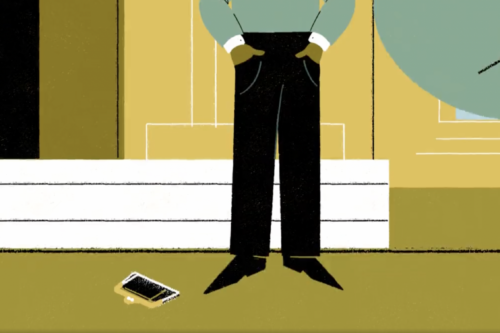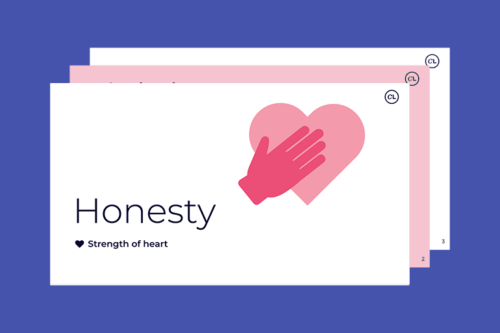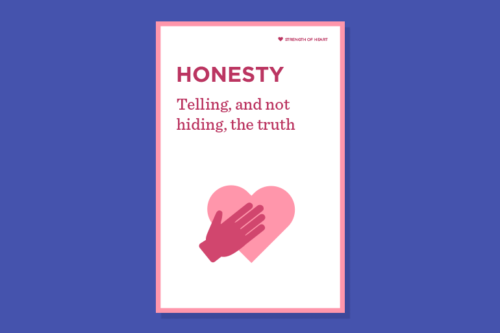Honesty
Telling, and not hiding, the truth
 Strength of heart
Strength of heart“Better to get hurt by the truth than comforted with a lie.”
—Khaled Hosseini, The Kite Runner
Why does honesty matter?
When you leave your valuables on the lunch table or use a bank account to save money, you’re relying on the honesty of others. While it’s easy to convince yourself that a small lie is harmless, cheating is a slippery slope: dishonesty breeds more dishonesty. It’s important to create environments where it’s easier to do the right thing. Honesty builds trust, and trust creates a healthier social fabric.
Pulse Check
To gauge your current level of honesty, ask yourself how true the following statements are for you:
- I resist telling the little lies that make life easier.
- Even if others are cheating, I follow the rules.
- If I pay for something and get too much change,
I return it. - I say what I think, though others might disagree
with me. - I’d try very hard to return a lost wallet.
How do I encourage honesty in others?
Model it. Kids are more likely to be dishonest after they know they’ve been lied to, even when the lie is small. Therefore, it’s better to avoid talking about a topic rather than lying about it. Remove yourself from situations where you have a conflict of interest, so it’s easier to be honest.
Celebrate it. Acknowledge when people are honest in difficult situations: “It was hard to hear you didn’t like my story, but I’m glad you gave me candid feedback.” Also notice when others respond well to honesty: “I’m sure you were mad when your brother broke your toy, but I’m proud of you for being gracious after he admitted to it.” Praise ethics over achievement: “I admire your team for showing good sportsmanship, even when the other players broke the rules to help them win.”
Enable it. When kids admit to doing something wrong, respond kindly. Help them acknowledge the dishonesty, discuss it, and pledge to act differently at the next opportunity. Encourage them to reflect on the importance of trust. For instance, teachers might write an honor code with their students at the beginning of the school year and post it prominently. And take advantage of the calendar: a new semester, a new month, or even a new day can be a fresh start for honesty.
About the Authors
Tips

The Wallet Test
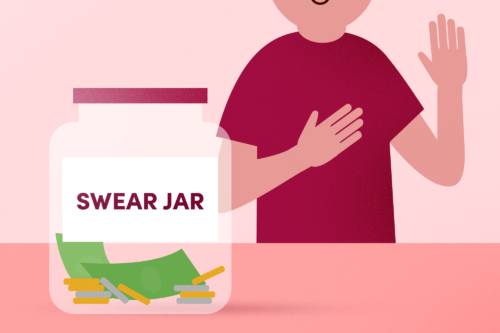
Stay True
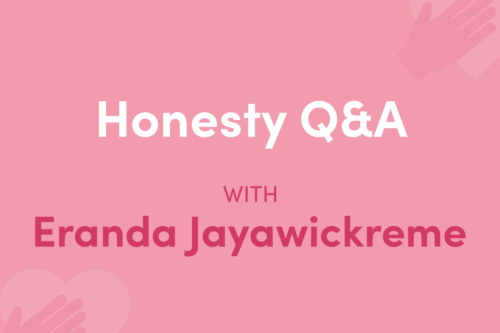
The Honest Truth
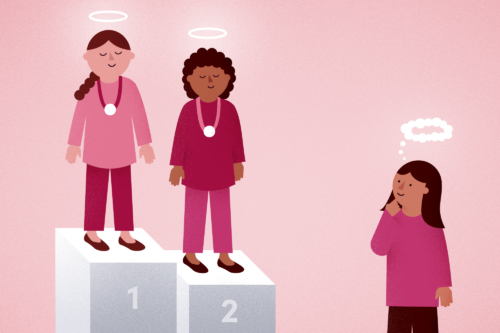
Better Your Best
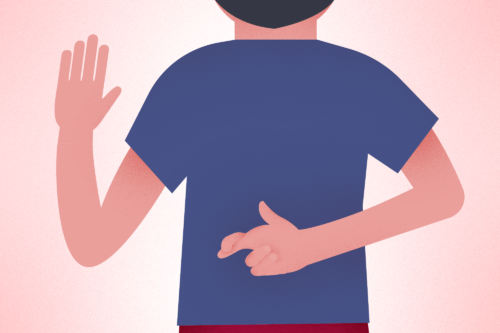
The Danger of Small Lies

Honest People
Learn More
Character is more than just honesty.
There are many other strengths of heart, mind, and will.
LEARN MORE ABOUT CHARACTER


